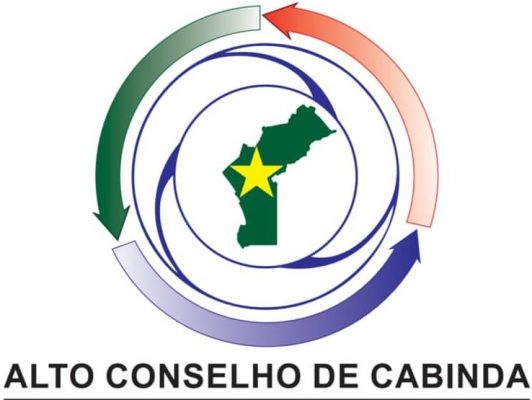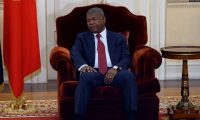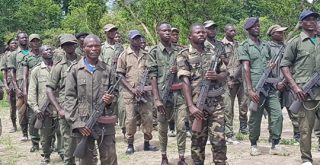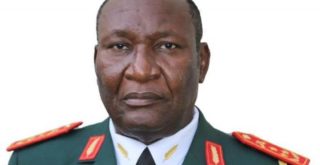Chronology of the Cabindese independence movements and some key dates that influenced their struggle.
|
February 1885 |
Cabinda becomes a protectorate of Portugal, under the Treaty of Simulanbuco. |
|
1948 |
Birth of the precursor movements of Cabindan nationalism. COMCABI was created in 1948. |
|
1954 |
Beginning of oil exploration. |
|
1956 |
The Portuguese government creates an administrative union between Cabinda and Angola. |
|
1959 |
Creation of the Association of Nationals of the Enclave of Cabinda (AREC). |
|
October 1960 |
Mr. Stéphane Tchitchelle, Minister of Foreign Affairs of Congo-Brazzaville, delivered a speech at the podium of the United Nations, where he informed the United Nations of Cabinda’s claims for its sovereignty, referring to the petition made by the Cabindais representatives. |
|
1961 |
Creation of the Cabinda Enclave Liberation Movement (MLEC). Uprising of the Bakongo in the Baixa de Cassange marking the start of the colonial war. |
|
1961 |
Mr. Emmanuel Dadet, representative of Congo Brazzaville to the United Nations, was the second personality to be responsible for transmitting to this institution an amplification of the request demanding the independence of Cabinda, addressed to the Lisbon authorities by the notables of Cabinda. |
|
1962 |
Creation of the National Union Action Committee (CAUNC) and ALIAMA (Mayombe Alliance). |
|
November 1962 |
Mr. Luis Ranque Franque, President of the Movement for the Liberation of the Enclave of Cabinda demands, during the seventeenth session of the United Nations General Assembly, the creation of a commission for the settlement of the Portuguese-Cabindian dispute. |
|
3-4 August 1963 |
Creation of FLEC resulting from the merger of MLEC of Ranque Franque, CAUNC of Nzita, and ALIAMA of Eduardo Sozinho. Luis Ranque Franque elected President of FLEC. |
|
December 1963 |
Alphonse Massamba Debat becomes president of Congo-Brazzaville and opts for Bantou socialism. |
|
1964 |
It is therefore thanks to these previous diplomatic successes that then the President of FLEC, Luis Ranque Franque, had to address in 1964 to the general assembly of the Organization of African Unity (OAU) in Cairo, for again pose the problem of Cabinda. During this august assembly, Cabinda was admitted by the OAU as the 39th country to decolonize, distinctly from Angola which was ranked 35th. |
|
1965 |
Mobutu takes power in Congo-Kinshasa. |
|
1969 |
Marien Ngouabi becomes president of the Republic of Congo-Brazzaville with the creation of the Congolese Labor Party (PCT), close to the MPLA. |
|
1974 |
Carnation Revolution in Portugal. A few months later, in September, the Red Admiral, Rosa Coutinho, seized power and gave full support to the MPLA. |
|
January 1975 |
The Alvor Accord, which declares Cabinda an “integral and inalienable part of Angola”, is signed by three Angolan liberation movements: the National Front for the Liberation of Angola (FNLA); MPLA; and the National Union for the Total Independence of Angola (UNITA). |
|
February 1975 |
David Charles Ganao (Congo) and Bagbeni Adeito Nzengeya (Zaire), Foreign Ministers, declared during the 24th ordinary session of the Council of Ministers of the OAU, that Cabinda will not be an integral part of Angola and must be a state on the same basis as other states. |
|
November 1975 |
Proclamation of the independence of the People’s Republic of Angola by Agostinho Neto. The FNLA and UNITA in turn proclaim the Democratic Republic of Angola in Huambo. FLEC declares independence at an OAU summit. |
|
1977 |
First split of the FLEC: the military command for the liberation of Cabinda (CMLC) is created. From this split will also emerge other movements like FLEC-Lubota. |
|
1979 |
Eviction of General Joachim Yombi Opango from the Presidency in Congo Brazzaville in favor of Colonel Denis Sassou-Nguesso, who takes power. |
|
1979 |
Death of Agostino Neto and Coming to power of José Eduardo do Santos |
|
1983 |
Formation of the FLEC-Military Position (FLEC-PM) in the Kimbianga refugee camp, Zaire. |
|
1990 |
Kidnapping of Brent Swan by US company Chevron FLEC-PM, signaling the start of a long campaign of kidnappings. |
|
1994 |
Creation of the Forum des Nationalistes Cabindais (FONAC) bringing together the FLEC-FAC, FLEC-R, FLEC Originel, FDC, UNALEC, MRITC, UNLC, RDPC, and CIC. |
|
1996 |
Signature of the Midgard Lodge agreements in Libreville leading to truces with the FLEC-R and FLEC-FAC. |
|
2002 |
Launch of Operation Vassoura which deprives the FLEC of its historic base in the Mayombe forest, Kungo-Shonzo. |
|
August 2003 |
Luis Ranque Franque, founder of FLEC, is participating in preliminary discussions with the authorities in Luanda. |
|
2004 |
Creation of Mpalabanda (the tree that resists fire). Schism within the Cabindais clergy. |
|
2004 |
Formation of the Cabindais Forum for Dialogue (FCD) in Helvoirt (Netherlands) between the different factions of the independence movements. |
|
February 2005 |
The main civil organization in the province of Cabinda, the Mpalabanda Civic Association, publishes a detailed report on around 70 alleged violations, including killings, rapes, intimidation strategies, and illegal detentions, carried out by government troops against men, women and children between September 2003 and December 2004. |
|
2006 |
Namibe Memorandum of Understanding signed with a FCD faction. Although Angola says the deal gives Cabinda “special status,” dissident FLEC members vow to continue the fight. |
|
2010 |
Attack on a bus carrying Togo’s national team players during the African Cup of Nations, killing three. |
|
September 2017 |
Political change in Angola, election to the Presidency of the Republic of Angola of General João Lourenço and José Eduardo do Santos remains the head of the MPLA. |
|
February 2018 |
Father Jorge Casimiro Congo appointed Secretary of Education in the Provincial Government of Cabinda. |
|
February 25, 2018 |
Death of the last of the three co-founders of FLEC in 1963, of the Secretary General of FLEC António Eduardo Sozinho Nzau (President of ALLIAMA), after the President of FLEC Luis de Gonzaga Ranque Franque (died in September 2007, President of MLEC) and the Vice-President of FLEC Henriques Nzita Tiago (died in June 2016, President of CAUNC). |
|
October 21 to 24, 2019 |
Creation of the High Council of Cabinda (HCC) in Accra, Ghana, during the inter-cabindese meeting organized by the Organization for the Development of Africa (OAD), at the Kofi Annan International Peacekeeping Training Centre (KAIPTC). |












